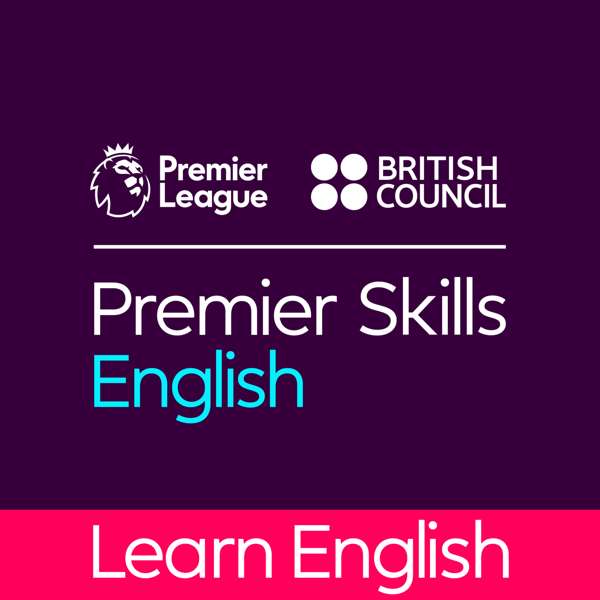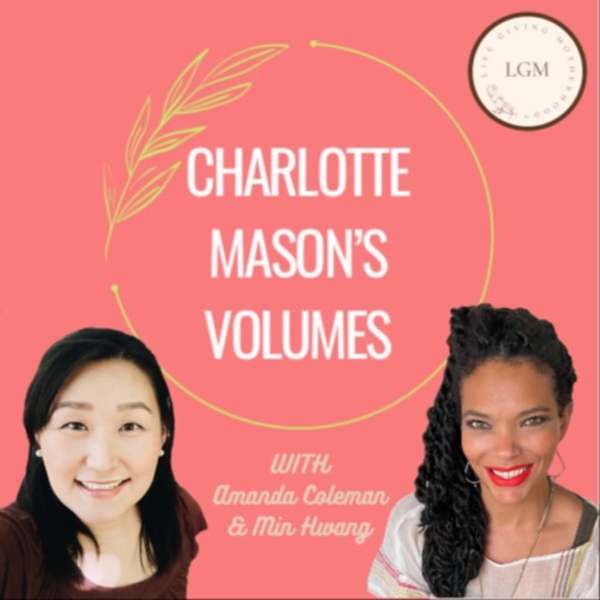Caitlin Mitchell from EB Academics joins the podcast to discuss how we can handle constructive criticism well as teachers.
You can reach Caitlin at:
https://ebacademics.com/
https://www.instagram.com/ebacademics/
Thank you to our sponsors:
eSpark Learning
go.espark.app/educator
and
Hand 2 Mind
https://www.hand2mind.com/
Carrie (00:04):
Hello and welcome to educators to educators podcast. I'm Carrie Conover and this is episode number 67: How to Handle Constructive Criticism Well. I'm Carrie, the founder and CEO of educators to educators. Thank you so much for joining me for this episode. Today we have a very special guest and we are going to talk about a topic that can be kind of tough - constructive criticism. Before we get started talking to our guest, Caitlin, I want to remind all of you that we have recently launched e2e modules. E2e modules are courses that you can take to learn a new skill or explore professional development. We have recently relaunched Classroom to Boardroom. Classroom to Boardroom is a module that will teach you everything you've ever wanted to know about working for an education company. As many of you know, if you know my story, I went from being a veteran teacher in Chicago public schools to an executive at Discovery Education.
Carrie (01:08):
I've been there, I've spent eight years in education technology. In this module, I teach you all the various types of jobs out there in the education world, the different types of companies you can work for, the salaries, all of the different options you've always wanted to know. I really believe that sometimes teachers yearn for more and want to leave the classroom and they shouldn't feel guilty about that, and so I created this module to teach you how to transition out of the classroom, but stay in education. I don't want you going to work in retail or for a bank. I want you to stay in education and use your treasures and talents. You can learn more about the Classroom to Boardroom module, at educators2educators.com/career.
Carrie (01:57):
Caitlin Mitchell is one of the founders of EB academics along with co-founder Jessica. Katelyn and Jessica are the authors, teachers, and curriculum creators behind the EB Teachers' Club and Writing Instruction: A Proven Approach. They have both been ELA teachers and ELA coaches for more than 25 years combined and curriculum developers since 2012. Caitlin and Jessica created AB academics to help make the lives of middle school ELA teachers easier while supplying them with quality and engaging ELA lessons for their students. They want teachers to walk into their classroom each day with confidence, knowing that they have quality content to teach. They both received their master's degrees in secondary education and curriculum design from Loyola Marymount University in Los Angeles, California. Caitlin and Jessica currently reside in the Bay area with their families. I am so excited to have Caitlin talking about this really tough topic today, so let's get started with Caitlin. Caitlin, thank you so much for joining us on the educators 2 educators podcast.
Caitlin (03:18):
I'm so excited to be here. Thank you so much for having me.
Carrie (03:22):
This is a long time in the making, don't you think?
Caitlin (03:24):
Oh yes, totally. We've been talking about it, I feel like for months.
Caitlin (03:28):
Yes. I'm so glad that you crossed my path. Gosh, it was last November was that November of 2018 that we first met. And you agreed to be a presenter in the first e2e New Year Reboot. And you've been in every conference since, so grateful that I have met you and that you're sharing your talents with the e2e teachers.
Caitlin (03:48):
Oh well thank you so much. The feeling is so mutual and I just think that what you are doing for teachers is incredible.
Carrie (03:54):
Well thank you. And today you are going to join us to talk about something that is so important, which is how to handle constructive criticism.
Caitlin (04:03):
Yes. And I know that's a hard topic for some people to even wrap their minds around talking about.
Carrie (04:10):
Well and I think a lot of it is because as teachers we put our heart and soul into the classroom and so it is hard sometimes to hear that maybe everything we're doing isn't perfect.
Caitlin (04:22):
Yes, it is very difficult. And I think that comes to absolutely with what you said, we put our heart and soul into what we're doing, but I just think it's not really a part of the profession in a way that we're being coached all the time. You know, like in other professions I'm talking, you know, NBA, MLB professional athletes have coaches every day teaching them how to get better. And I think that if that was what the educational world was like, that it was just kind of that same idea, it wouldn't be as big of a deal and it would be more commonplace obviously, to have people come into our classrooms and helping us get better and perfect our craft over time. So I think that that a lot of that comes because it's just not something that we have often, you know?
Carrie (05:06):
Yeah. Well it's interesting when I was going over our notes today, by the way, you guys, we always talk about, you know, three subtopics on ETV. I'm obsessed with the number three. So we're going to talk about 0.1 being being proactive as a teacher. A 0.2 is how to create a school culture where you know, it's a culture of growth. And then we're going to wrap up talking about changing our mindset as teachers. And while I was reading through your notes, Caitlin, I had this flashback to my first year of teaching in Chicago public schools. Can I take you back there?
Caitlin (05:40):
Yes, please.
Carrie (05:41):
Okay. So I was a career changer. So I was like 26 or 27 when I started teaching. So I had a little bit more of life under my belt and I had my principal come in for my first formal observation. And back then in CPS we were old school and we have these green binders. If anyone's taught in CPS, they're shaking their heads right now these green, binders and inside there were papers with these grids on them. And that's where you kept attendance. Okay. It was, it was the most complicated system I've ever seen. If a student was tardy, you put one slash if they were absent, there was two.
Carrie (06:21):
If they were excused, you put a dot. If it was unexcused, it was like circled in red and this is all paper and on and on.. So my principal comes in for my first observation, I'm a brand new teacher. I felt like I knocked it out of the park. What they used to do in observations is they wrote on this carbon copy paper and then they would leave the copy on your desk and walk out and leave. So I was so excited to finish my lesson. I walked over and I looked at the copy and I looked down and I had like excellent, excellent, excellent, excellent on everything except for at the very bottom it was checked like unsatisfactory,on attendance book.
Caitlin (07:02):
Oh my goodness.
Carrie (07:03):
And it said use black ink ALWAY.
Caitlin (07:07):
Oh my gosh. I just can't, that's whole, I'm sorry. That's a hilarious story.
Carrie (07:14):
That is the feedback. That is the only feedback that I got. And you know, I cried on my prep. Oh, I'm sure. I was like, Hey, I know you checked excellent on every other box. And this is like a first year teachers dream, but you only feedback you could take to write in black. It was like use black ink. So anyway, you, you having flashback, but I think you're going to give all of us some really good tips today about you know, how to handle constructive criticism. So let's talk about being proactive.
Caitlin (07:49):
Yeah, yeah, absolutely. And so I wanna kind of just go back to what you just said that I think is important to preface the whole episode with is that even though we are going to be obviously observed by our admin, our principals, that observation is not the end all be all of everything. I know it goes into like a lot of our our files and you know, there are some issues around, you know Oh, I can't, I think of the word formal observations, right. You know, and in certain schools but I just want to tell teachers like it does not determine who you are and the type of teacher that you are. Just in the same way that our students test scores do not determine the type of student that our students are. We obviously know there's a much bigger picture behind each kid than the numbers show on a test. It's the same thing when it comes to observations. And I want to give you just really a quick story to that you just made me think of when I interviewed for my position at my most recent school, I did this great lesson on figurative language and same thing, Carrie. I was like, I fricking crushed that. Like I just did a great job, they're totally going to hire me, whatever. And so they hired me, everything was fine. And like two years later I was looking through my file and I found their observation notes from when I did my my gosh sample lesson with the students. Yes. I probably shouldn't have been able to come across it, but it was just in there and I got like bad scores on everything because I didn't say what the objective was. So the whole observation of me was supposed to be focused on me telling the kids what the objective of the lesson was. And because I didn't say that one thing, I got all of these bad marks yet, they still hired me. So it's like you know how they're OBS observing us in the, the criteria that they're observing us on doesn't necessarily mean that you're a good teacher or a bad teacher or any of the sort.
Carrie (09:34):
Right.
Caitlin (09:35):
Um it's just an observation. So I just want to preface it with that and I probably shouldn't have been allowed to find that piece of paper that showed all that information. But it's fine to show. It just goes to show like it's one person's opinion. Right, exactly. It's so subjective. And I even went up to my principal afterwards and I was like, really? This is what you guys said about me. You didn't say all of the other amazing things about me cause I had a great relationship with him. He's like, you shouldn't be seeing that. But it was pretty funny. So I just want to preface it with that. Like an observation does not mean that you are a bad teacher or a good teacher. It is one glimpse into who you are as a teacher.
Carrie (10:13):
Yup, absolutely. So with that being said, we'll start with point number one and that's really, I think it helps a lot to be proactive in building this relationship with your principal, with your colleagues, of people coming into your classroom all the time.
Caitlin (10:27):
So I think it's really important for you to go out or for us as teachers to go out and ask for feedback before we have that formal observation. So it can be something as simple as just like taking matters into your own hand, going into your principal's office and saying, Hey, I have this great lesson I love for you to come observe me. Let me know your thoughts, any feedback that you have. And what's great about doing that and being proactive is that you are the one who is kind of in control of this situation, right? You're the one asking for an eliciting feedback from your principal. And so I think that that's really helpful because it puts us into this positive mindset of, okay, I'm asking for feedback, I'm asking for criticism as opposed to I have to receive feedback, I have to receive criticism.
Carrie (11:14):
So that point of being proactive I think is very, very important. I love that so much. And I love the idea even thinking about when I was managing teams, when I worked in ed tech, like I was the boss. Sometimes I can't believe I led people in that way. But anyway I had really good relationships with my managers and sometimes when they would say to me, Hey, like how am I doing in general? I would say sometimes that's hard for me to give you this big broad feedback. What do you want to improve on? What do you want me to look for? What are you feeling insecure about so that I can help you in a better way. And so that is the same I think for when you're being proactive with a principal or an assistant principal and saying, Hey, I would love for you to come in and I've really been working on, you know, flexible seating or grouping or I don't know, whatever it is you can work on. Like give them something specific to come in and look at.
Caitlin (12:16):
Yes. And I think Carrie, I'm so glad that you said that cause that kind of builds onto the other point I want to talk about about being proactive is that yes you can start with like an a lesson that you're really comfortable with. So I might have my principal come in and observe me teaching a writing lesson that I just know I'm going to knock it out of the park. Right. And then when I ask them to come back in a second time, I can ask them like, Hey, I'm really struggling with this student's behavior. Can you come in and watch this student in class? Let me know. Like what would you do? Like what are some suggestions that you have to help me with this student? So, you know, you can ask them for assistance in behavioral issues.
Carrie (12:52):
In, in things like you're saying, a flexible seating or content specific if your principal is, you know, has that experience with the content that you're teaching.
Caitlin (13:01):
Um so asking them, yes, Carrie for specific feedback on certain things that you are struggling with shows initiative. It shows that you care. It shows that you want to get better. And honestly, if I was a principal I would be like, yes, I'm going to help you. Like the, you know, this is a stellar, a teacher right here who obviously wants to improve their craft. I'm going to do everything that I can to support you. Unfortunately, that's not the case for every teacher out there. I wish it was, but I think that it says a lot about you as a teacher taking that initiative to get better and improve your craft. Yeah. And principals have very stressful jobs. Yes. I would never want to be a principal.
Carrie (13:36):
You can kind of tug at their teacher heart, you know? Can you, I know you like, you are so amazing at this. When you were in the classroom or I've heard you are really strong at this tug at that teacher heart for them and get them back in the classroom because they want more of that. Totally force them to take that stuff.
Caitlin (13:52):
Yes, yes. The culture of growth for adults. We talk about this all the time about our kids growth mindset. What is it to have a culture of growth at your school? What does that look like? So this was really cool at my, not my most recent school, but one of the schools that I taught at prior when I was in Los Angeles, it's actually the school where I met Jessica, who? Jessica, who, those of you who don't know as the other half of the academics, we have middle school English language arts teacher resources and things like that.
Caitlin (14:21):
So this is where I met Jessica at this school in LA and one of the years that we were there, our principal decided that, you know, he was going to come into our classrooms a lot more often. He wasn't just going to come in for formal observations. He came into our classrooms, you know, every other week, just sat for 10, 15 minutes, interacted with the kids, participated in the lesson with us. And it took a lot of pressure off of the times when he did come in to do the formal observation. So that was one part of the puzzle like that our principal was really invested in helping us grow as teachers. But beyond that, we as teachers were then required to go into every other teacher's classroom for like five or 10 minutes for a super informal observation. So I went into every classroom from TK, so transitional kindergarten all the way up to eighth grade, you know, science and history and math, which I don't know anything about math.
Caitlin (15:15):
It's a strength of mine at all. But was was really cool about that is that yeah, it was during our prep periods, but it was really invaluable because there, you know, I picked up on so many little like nuances or like a cool idea that one of my colleagues was doing that I never would have seen because why as I, you know, as a seventh and eighth grade ELA teacher was I going to go into a third grade classroom and observed them, well this created so much community of growth and this culture of growth because we were all a part of each other's growth and becoming stronger and better teachers. And it was really cool to have everyone come into my classroom and just see what was happening in our school. You know, we become so isolated in our classrooms, they close it. Are we teaching?
Caitlin (15:57):
That's it. Well, when you are moving through other teacher's classrooms, it's just an amazing experience. And I have to say that that is a Testament to my principal. That was, he was hands down the best principal I've ever had. And that was a huge part of it. That sounds amazing. And if you don't have that culture at your school and it's something that's important to you, bring it up.
Carrie (16:17):
Yes. Talking about it, you know, instead of sitting at lunch and complaining about the students that are driving you crazy, which does happen. And often bring this idea to other teachers and say, Hey, what do you guys think about this? And maybe you guys could put together a committee and come to your principal and say, I think we should start this. Cause I do think that having lots of people in your classroom, I had so many people in my classroom all the time that I, it didn't, I didn't even flinch when people walked into my room. And I'm just going to keep on teaching.
Caitlin (16:50):
And what's great is if you're constantly having other people's ideas, you know, in your brainstorming with other people, you are going to grow. And then when you do get feedback that's not so great. It makes it a lot easier to be receptive to that feedback and be like, okay, you know, I'm not perfect. Some people have other better ideas that I could be taking into my classroom. And so I think just kind of changing that perspective allows you to just grow and be a better teacher.
Carrie (17:18):
Yes. And you have to take those things that kinda hurt. Like when you hear a feedback I think, and you kind of flinch to it. Yeah. We're going to talk about your mindset as a teacher in a second. I think sit on that for a few days before you do any kind of reacting to it and say, and I talked about this in one of our previous podcasts. If you're having that much of a gut reaction, you really need to look hard at it and say, is there some truth to this? Right? Know this about myself and I'm working on it or I've buried it deep inside and I don't want to think about why it hurts so much. I'm like, thinking back to my black ink comment, like I knew I wasn't doing a good job on that attendance book cause I thought it was the most ridiculous thing.
Caitlin (18:06):
Right. So if you released that way that you should have been using the black ink, the, I wish the 42 year old and me could go back to the 27 year old woman and say, just sit on it for a couple of days and your realize that this is actually a good thing. Like maybe you wouldn't think of anything else to say.
Caitlin (18:27):
You know what, I was really focused on that one little blacking talk about our mindset and yes, I'm going to change our mindset. Yes, they're able to handle this. So, so often, you know, we talk about our students like you're not going to get it perfect the first time, right? It's all about failing. It's not about succeeding and we learn from our failures. And so we, we tell our students that, well how much of that are we really taking? You know, if we sat back and are like, okay, am I okay with failures? Am I learning from my failures? And I think more often than not, the answer isn't yes for a lot of us, you know? I know it wasn't for me, especially my first year of teaching, if I failed at something, it was like the end of the world, I would cry as opposed to seeing it as a learning opportunity.
Caitlin (19:11):
And what you just said, if you're 42 year old self could go back to your 26 year old self. I mean I'm 33 I think I sometimes forget how old I am. I'm 33 and you know, I, I just realized that I'm not 42 sorry to interrupt you. I'll give you 42 in a couple of weeks. So I gosh, well happy early birthday. That's hilarious. Now that we have determined how old both of us are, let's talk about how we can change our mindset when it comes to hearing constructive criticism as a teacher. Yeah, absolutely. And so I think that this is something that's really difficult for a lot of teachers. I know it was difficult for me in the very beginning of teaching and you know, you want to be good at everything that you do. But I think it's important to really remember that with every failure is going to come and learning opportunity with every problem is going to come a solution.
Caitlin (20:01):
And so it really is that this thing exists in this binary, right? Whenever you have a failure in your life, regardless of whether or not you can see the outcome, the positive outcome, the success in that moment, which most likely you can't because you're upset and your emotions are really getting the best of you. But just knowing that there is going to be something positive that comes out at the end of that. And so if we're able to separate our emotional state from justice critique that we're getting of this one, quote unquote failure that we might be having or seeing in our classroom, we ultimately are going to have a huge success as a result of that. And so an eight in order to be able to do that, I think it takes a lot of just self-awareness. And I like to think of professional athletes.
Caitlin (20:43):
Kind of going back to that analogy that we talked about in the very beginning, that all athletes have one person in common. They all have a coach, right? Tom Brady has a coach. Tiger woods has a coach. Regardless of whether or not you hate tiger woods or not, he has a coach. Steph Curry has a coach. All of these amazing athletes all have coaches that are sitting there critiquing them about something in their craft and their skill that they can get better at. Why is teaching any difference? Right? Why is a principal coming into our classroom coaching us on something that we can improve upon any different than what these professional athletes are doing? So if we're able to look at it through that lens, like, Oh, even Steph Curry has a coach, like I can have a coach and I can be okay with that constructive criticism. And at the end of the day, being receptive to that constructive criticism I truly believe is the single best thing that you can possibly do for your students and for your students' success because you ultimately are going to become a better teacher as a result of being receptive to that feedback.
Carrie (21:40):
I don't know how I could even add to that because it was so amazing. I love when you start getting into it in your passion because you can tell you are very passionate about this. I would have loved to put you in Dan Jones, who was on one of our previous podcasts together in a room. He talked about how professional athletes learn that each time they go out on the field. So every time a major league baseball player goes and plays a game, that is one performance. That is not who he or she is as an app, as a person that doesn't define them. It's one performance. And so I, he was talking about as teachers, it's hard cause we grew up thinking maybe, Oh, I'm going to be just teacher and make all these waves and changes in the world. And so where our heart is in it a lot more than our brains sometimes. As far as like our emotional reaction to things. And so if we can think of your observations as being one performance and you're getting feedback about that one performance, it's not who you are as a teacher. It's not who you are as a human being. So I think you and Dan Jones, we get along really well. We'll have to set up the meeting so we can talk. That would be amazing. Uman I be in a fly on the wall in that meeting?
Caitlin (22:51):
Yes, absolutely. Well thank you so much for joining us to talk about this.
Carrie (22:56):
What I really want you to do now is to tell everyone what you've been working on with your partner at Eve academics, where you're headed and where we can all find you.
Caitlin (23:04):
Yes. Well, first of all, I want to say thank you for allowing me the opportunity to come on the podcast and talk about something that I'm super passionate about because at the end of the day, this is going to be the thing that makes waves for our students is when we can be okay with constructive criticism and perfect our craft. So AB academics is a company that I co-founded with my partner Jessica, my business partner, Jessica, who I mentioned earlier in this episode and she and I actually taught at that school together where our principal set up the whole fabulous observations for all of us and Eb Academics supports middle school English language arts teachers.
Caitlin (23:35):
We sell teaching resources on teachers, pay teachers, but we also have a monthly membership as well as an online professional development course for teachers. So our goal is really to support and a much deeper, more meaningful way to really create a partnership with them in a support group with them and walk them through, you know, everything that comes along with being a middle school ELA teacher from writing to reading to creating engaging lessons. Because we really want students to love learning and we want to help our teachers fall in love with teaching. Again. So many of the teachers in our community have said, you know, I've been teaching for 25 years and now I finally love teaching again. I found that spark, that enjoyment, that inspiration to go to class every single day because of what our community has been providing for them. So it's just been a really incredibly moving experience to have an impact on teachers ultimately having an impact on thousands of students across the country and even the world.
Carrie (24:31):
Amazing. So where can we find you if we want to learn more?
Caitlin (24:34):
Yeah, so the best place to find us is on Instagram at Eb Academics. You can also find us on Facebook at EB Academics kind of anywhere EB academics is. And then we also have a podcast that we would love to have you come be a listener. We are that a teaching middle school ELA podcast. If you just type in teaching middle school will be like the only one that pops up so you can find us there.
Carrie (24:54):
That's amazing. Also if you are an e2e member and you are inside of our site there's quite a few presentations. Two of them that come to the top of my mind are the one that you did. Maybe you're not an ELA middle school teacher but you are thinking about going, starting your own business. You did a really great presentation about like working with a partner in a business situation and then the one that you did for the new year reboot a conference around narrative writing. I think any teacher really can get a lot from that, not just middle school ELA.
Caitlin (25:27):
Yeah, absolutely. Thank you for mentioning those. I had actually forgotten that I did the other one about having a business partner and so you are thinking about going into business. Go watch that because it's very important when you go to create a business partnership because you want to make sure that you create a strong foundation for what you're doing. Cause a lot of things can STEM from having a business partner. It can be very challenging but also fabulous and wonderful. Yes. Well, thank you so much for joining us on the podcast. I do think that this is going to happen again.
Carrie (25:56):
So yes, let's do it. A long friendship and partnership with you. So thanks for coming and spending your time and talents with us.
Caitlin (26:03):
Thank you so much for having me.
Carrie (26:05):
Thank you so much.
Carrie (26:06):
Also to our sponsors, eSpark Learning and Hand to Mind. Thank you for sponsoring everything we do here at [inaudible] and for all of you, stay strong out there. I know this is a rough time of year with everything going on with the Coronavirus and getting through all of this stressful time. Some of us aren't, you know, at school right now, or we're waiting to see if our schools are going to be shut down. I'm sending love and peace and happiness to all of you. We will get through this and until next time, my friends keep on teaching on.

 Our TOPPODCAST Picks
Our TOPPODCAST Picks  Stay Connected
Stay Connected







